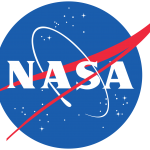Brief
Creating Professional Development for Informal and K–12 Educators
Lessons from NASA Surveys
Connected Science Learning October-December 2017 (Volume 1, Issue 4)
By Lindsay Bartolone

The results of NASA’s Science Mission Directorate surveys help science education professional development providers successfully work with educators.
NASA’s Science Mission Directorate (SMD) explores the Earth, the Sun, our solar system, the galaxy, and beyond through four divisions: Earth science, heliophysics, planetary science, and astrophysics. Teams of education and public outreach (EPO) specialists work alongside NASA scientists to develop and implement programs and resources designed to inspire and educate students, teachers, and the public.
From 2009 to 2015, NASA’s SMD EPO Forums coordinated and supported overall EPO efforts for each of the SMD divisions. The Forums also convened working groups to conduct national surveys of their audiences—informal educators and K–12 teachers—to help science education professional development providers increase their capacity for success in working with those audiences. The working groups were composed of both NASA-funded EPO professionals and advisory members from outside NASA.
Two surveys were conducted: one in 2013 for the professional development workshop and resource needs of informal educators, and another for K–12 educators in 2012. Key findings are found below. The full reports for informal educators and K–12 educators are available online.
Key findings
The survey for informal educators found:
- participation in professional development opportunities is a required part of their job duties.
- 60%–90% of respondents across all institutions indicate that they would be likely or very likely to train other educators on topics, techniques, or content learned in workshops and professional development sessions.
- preferred resources included:
- lesson plan/activity facilitation instructions;
- lessons that are already aligned to the Next Generation Science Standards (NGSS Lead States 2013);
- background information about professional development workshop session content; and
- access to communities of practice to provide extended support and ongoing learning with the workshop attendees, facilitators, and experts.
The survey for formal educators found that this group:
- would be most likely to attend a full-day or half-day professional development opportunity. The next preferred option was a weeklong experience during the summer.
- ranked modeling and hands-on activities (4.8 out of 5) and learning science content (4.6 out of 5) as the most important aspects of a valuable and successful professional development experience.
- indicated that NASA classroom materials are of great importance to them. They ranked NASA lessons and activities, NASA videos and visualizations, NASA website-based information and activities, and authentic NASA data for use in student research between 4.4 and 4.5 on a Likert scale ranging from 1 (not useful) to 5 (very useful).
The NASA SMD EPO Informal Education Working Group was led by the Space Telescope Science Institute, in collaboration with the Multiverse group at the University of California, Berkeley, Space Sciences Lab; the Lunar and Planetary Institute; and the Institute for Global and Environmental Strategies.
Acknowledgment
 The Cross-Forum working groups were funded by the NASA Cooperative Agreements #NNX09AQ09A, #NNX09AQ10A, #NNX09AQ11A, and #NNX09AQ12A.
The Cross-Forum working groups were funded by the NASA Cooperative Agreements #NNX09AQ09A, #NNX09AQ10A, #NNX09AQ11A, and #NNX09AQ12A.
Lindsay Bartolone (lindsaybartolone@gmail.com) was chair of the informal education working group for the Astrophysics and Heliophysics Science Education and Public Outreach Forums. She works as an independent consultant in Chicago, Illinois.


